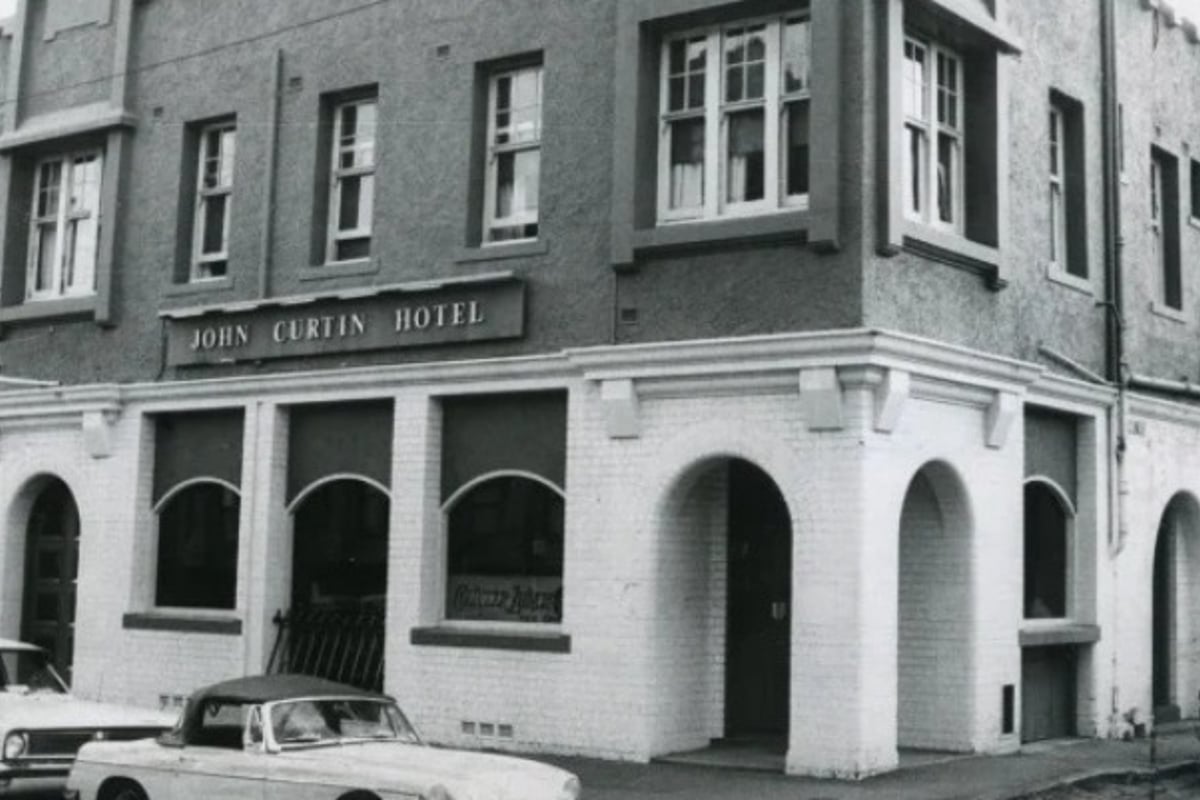‘We’re Looking at The Curtin Hotel as a Test Case’: Music Victoria’s Simone Schinkel Talks ‘Green Ban’

When the Building Industry Group (BIG) declared a Green Ban last month on the John Curtin Hotel, the historic pub was both secured for future generations to enjoy, and Music Victoria had a victory to savour.
Opening for business in 1859-60, the John Curtin is no ordinary Melbourne boozer. History has happened there.
Back in 1983, the year Australia won the America’s Cup and Men At Work were No. 1 pretty much everywhere, the pub was the spot where the Accord between Labor and the ACTU was discussed, a meeting which nutted-out many of the provisions Australians can now rely on, from Medicare to superannuation.
Also in the ‘80s, the Stray Blacks’ Alf Bamblett broke down racial barriers when he established a regular fortnightly event at the hotel to spotlight Aboriginal bands.
Earlier, in the ’60s, when most establishments segregated women from drinking with men, the John Curtin welcomed equal pay activist and feminist Zelda D’Aprano who called for progress, and, more recently, it hosted the wake of former prime minister and beer-drinking world champion Bob Hawke.

Simone Schinkel
Today, it’s one of few dedicated live music venues in Carlton, and it serves as a key launch pad for emerging local and international acts. The likes of Teenage Dads, Phil Jamieson, Frankie and the Witch Fingers (U.S.) and Tiny Ruins (NZ) are booked to play the room in the weeks and months ahead.
So when the cultural institution was purchased by a mystery offshore developer, the Victorian Union movement swung into action to protect it from the wrecking ball, with support from MV, MEAA, the Victorian Trades Hall Council, National Trust and others.
“Melbourne is the live music capital of the world, which is specifically calculated based on how many live music venues we have per capita,” said Simone Schinkel, CEO of Music Victoria, as the Green Ban was announced April 31.
“These places of live music obviously showcase our talent, but they also build community solidarity, give rise to new voices, celebrate who we are and show us what we can become,” she continued. “I really hope that what we are to become is a stronger live music state, one that honours our history and realises the value and important cultural contributions made by places like The Curtin.”
Green Bans have saved landmarks in the past.
Led by the Builders Labourers Federation (BLF), these bans have safeguarded several Melbourne treasures from development, from City Baths, to Princess Theatre, Hotel Windsor, Flinders Street Station and the Queen Victoria Market.
“It is so important that we protect our heritage pubs and live music venues – not just because they are important heritage buildings, but because of their irreplaceable social and cultural value,” comments Nicholas Reece, Deputy Lord Mayor, City of Melbourne.
The City of Melbourne has endorsed interim “significant” heritage protection for The Curtin Hotel, noted Reece last April, to help ensure it receives “the strongest possible level of protection in any redevelopment application. Any redevelopment proposal will be considered extremely carefully by Councillors.”
TIO caught up with Schinkel for an update on the Green Ban, its application to Melbourne’s live community, and some background on how it came to pass.

TIO: Congrats on the Green Ban for the John Curtin Hotel. What does it all mean for the Melbourne music scene?
Simone Schinkel: The Green Ban is basically a form of strike action. Here we have the support of the CFMEU, Electrical Trades Union, the Plumbing and Pipe Trades Employees Union, and the Australian Manufacturing Workers Union, who have committed to not working on any proposed re-development of The Curtin Hotel.
So right now, the Victorian music scene has got the support of some very powerful unions on our side.
How great a challenge was it to arrive at this point?
The Curtin is unique as there are so many different interest groups who are invested in saving it.
It is a Victorian icon for live music obviously — as a home for anything contemporary, ranging from experimental to punk, and was one of the first places where emerging Aboriginal artists could play in the ‘80s — but the hotel has also hosted political conversations and union events that have influenced the course of Victoria’s and Australia’s history.
In addition to the builders’ unions, we worked together with Trades Hall, MEAA, and the National Heritage Trust to get the Green Ban up.
What happens next for the John Curtin Hotel?
We know that the Curtin has been sold to an international buyer, but we are yet to understand who exactly that is.
Our aim would be to meet with them and discuss the significance of it as a live music venue, and to support them in working through their obligations as already included in the current planning laws for its social and cultural significance.
Now you’ve had the green light for one Green Ban, are there other venues Music Victoria are targeting?
We’re looking at the Curtin Hotel as a test case for the new planning laws that Music Victoria worked extremely hard to have updated to best support live music in the state.
But it’s great to know that when we need support from others, that many people will come out to add their voice to protect what is special about Victoria.
This article originally appeared on The Industry Observer, which is now part of The Music Network.






























